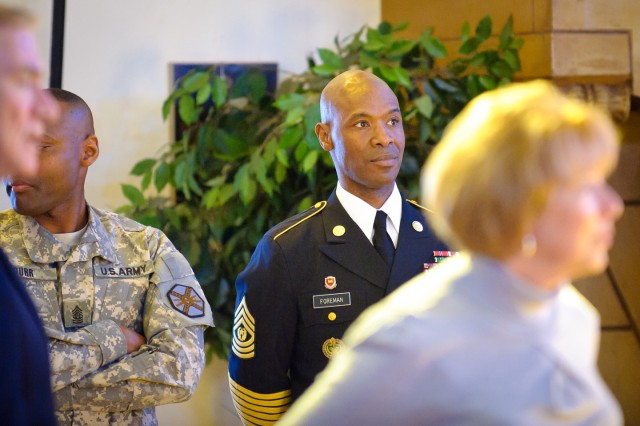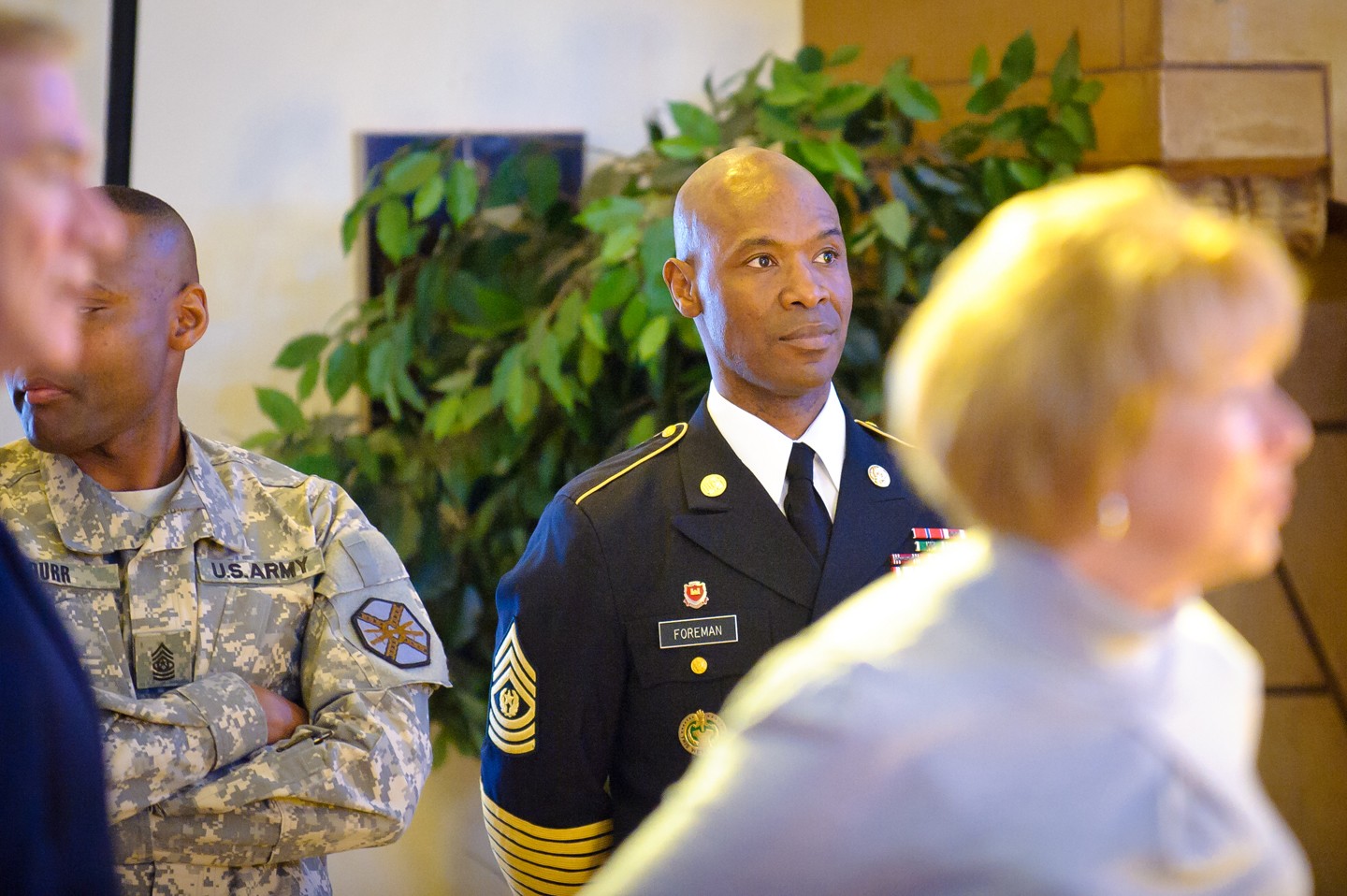FORT BENNING, Ga. - Command Sgt. Maj. James Foreman says he owes his life to the Army.
The former garrison command sergeant major was destined for trouble growing up in a rough Atlanta neighborhood riddled with drugs and violence, but joining the military saved him from a dubious future and led to a distinguished three-decade career as a Soldier, he said.
"Throughout high school, I really didn't know what I wanted to do or how I wanted to do it, but it seemed like everything I was doing was wrong," Foreman recalled. "I never got arrested, but I was always walking that line. I would always leave my friends right before they got into trouble, like I was being guided by something.
"My mother said the best thing I could do for her was to join the Army. She prayed me in there and kept me there."
Foreman was the fifth of 11 children raised by a single mother in East Point, Ga., on the southwest edge of Atlanta.
"It was very hard on my mother," he said. "She had to work, still ensure we were in school and worry about what we were doing when she wasn't around."
Temptation lurked around every corner in Foreman's hometown, he said. The former Stewart Avenue, now Metropolitan Parkway, cuts right through the heart of East Point. It had a notorious, red-light district reputation, and the area remains a cesspool of drugs, gang activity and prostitution to this day.
"I've seen everything from drug use to pack fighting, what would now be considered gangs," he said. "If I was to make anything out of my life, I had to do something - and go anywhere other than Atlanta."
After graduating from Sylvan Hills High School in 1978, Foreman went to a Job Corps Center in North Carolina to learn a trade, but nothing panned out. He was 22 when he decided to give the Army a try.
He enlisted in January 1981 and reported to Engineer Corps basic and advanced individual training three months later at Fort Leonard Wood, Mo., intending to stay in the service for three years and then return home, the sergeant major said.
"At basic and AIT, I started to see something in the way the Army and my drill sergeants did things I thought would really benefit me, but I was still lost, not knowing what I wanted to do," he said.
Foreman went back to Atlanta on leave in January 1984 and saw his old buddies still engaged in the same activities. Then a private first class at Fort Polk, La., he had to make specialist that March just to re-enlist.
His first sergeant, Clyde Kirby, pulled Foreman aside one day.
"He told me, 'If you promise to start doing things the way the Army says, I'll get you promoted,'" Foreman said.
The promotion came through, he reupped and met his future wife, Carletta, not long after. The two were married six months later in December.
"With the Army giving me structure and a path to find myself, that gave me responsibility, which I never had before," he said. "By meeting her and the Army giving me structure, I think that saved me."
Foreman then set his sights on becoming a drill sergeant and was wearing the hat as a staff sergeant guiding Soldiers through one station unit training at Fort Leonard Wood when he had a "light-bulb moment," he said.
"I knew this was what God intended for me to do - to be a Soldier and help train other people," he said. "As long as I could help one Soldier become a better Soldier, I was going to stay in the Army."
He wound up moving on to Fort Leonard Wood's Drill Sergeants Academy, where he groomed others for drill sergeant duty.
Nearly 30 years after enlisting, Foreman will officially retire May 1 after his permissive temporary duty and terminal leave periods expire. Two weeks ago, he handed over the garrison leadership role to Command Sgt. Maj. Mark Moore at a change of responsibility ceremony.
"Command Sergeant Major Foreman is a great story about tough beginnings and the Army experience giving him inspiration," said Col. Thomas Macdonald, the garrison commander.
Had he not gotten promoted 26 years ago, Foreman said his road might've taken a "catastrophic" turn.
"I would've went back home to Atlanta. Who knows what would've happened'" he asked. "It's possible I would've fallen back into the same routine with my buddies, and ended up in jail or even dead somewhere. I also would not have met my wife.
"The Army has really been good to me."
Foreman said he hopes to land a civilian position at Fort Benning that allows him to keep working with Soldiers and families.
"I don't think of it as walking away," he said. "I think of it as continuing to support the Army and families, but in another capacity. It's never, ever been about me. It's always been about what I can do to help the next person move forward. If it had been about me, I would've been out a long time ago."


Social Sharing